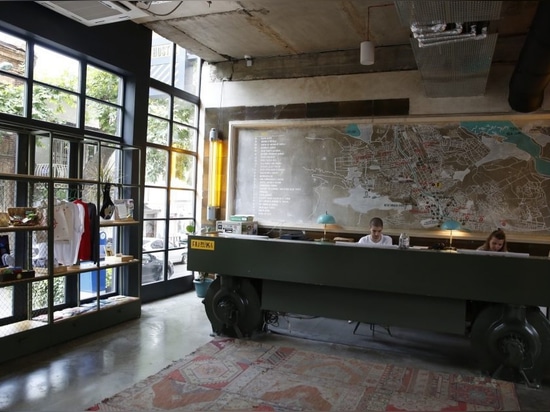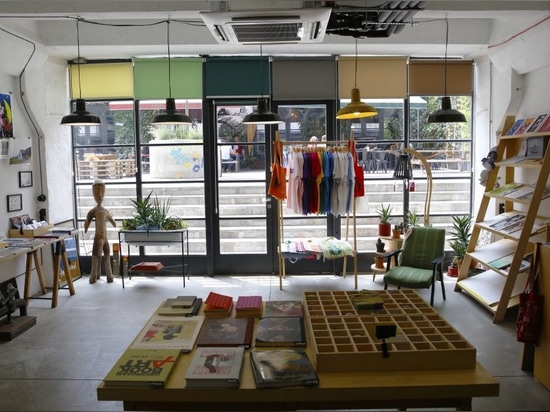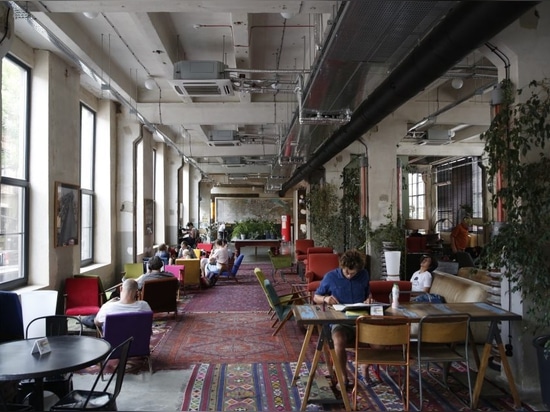
#Inspiration
Fabrika Tbilisi, an Ex-Soviet Factory Turned Urban Culture Hub
A striking stone mural above the main entrance of Fabrika Tbilisi is a window to Georgia’s past—portraying musicians, athletes, dancers and workers in vintage communist style.
It’s a potent contrast with colorful caricatures or jagged lettering which cover other parts of the façade and have spread to many more buildings around the street.
That cultural time clash epitomizes the transformation of a forgotten Soviet clothes factory into a thriving urban hub, which has radically modernized a sleepy neighborhood previously known for its flea markets.
Fabrika was developed by Adjara Group Hospitality and Multiverse Architecture (MUA), whose partners kept an eye on the abandoned site for several years before launching their ambitious project, completed in 2016.
The three-building complex is home to 22 carefully selected “residents” including a creative education center, concept stores, a co-working space, a hairdresser, artist studios, restaurants, bars and even a board games club—as well as a hostel for up to 400 people. Flexibility is key: Guests can choose a duplex family suite, private rooms or dormitories with 3-12 bunk beds.
The expansive central courtyard is neatly divided, with shops on the ground floor of the accommodation building, faced by a row of restaurants and cafes on the opposite side.
Indoors, the architects retain a retro industrial spirit with exposed pipes and cabling, bare walls and items from the old factory either kept for decoration or repurposed with a modern function—like a hefty trolley cart which serves as the reception desk.
“There were very few materials being used all the time,” MUA partner Gogiko Sakvarelidze, who grew up during the communist era, told ArchiExpo e-Magazine. “In every apartment, you would see the same tiling in toilets, the same kitchen, same furniture. We researched all these materials, colors and how they were painting, and it helped us make the design.”
Improving mobility was a major challenge. Sakvarelidze’s team knocked down walls, moved a heavy-duty elevator into a central, accessible position and added a steel staircase that invites visitors to view the interior from altered perspectives. In a subtle twist, its vaguely brutalist form is finished with bright red paint and polished natural plywood.
Fabrika has generated a ripple effect along the left bank of the Mtkvari river—a once unfashionable district that now attracts young people, artists and travelers from around the world.
“We chose a location which was cheap and which nobody needed,” MUA partner Devi Kituashvili told The Calvert Journal in 2018. “It made it possible: If the property was not this cheap, the project wouldn’t make sense economically.”
Many ex-employees of the clothes factory still live nearby.
“For them, this place was like their life,” Natia Sartania, one of the Fabrika residents, told ArchiExpo e-Magazine. “They spent so much time here, so what can be better than to adjust it to time and give it a new life?”







